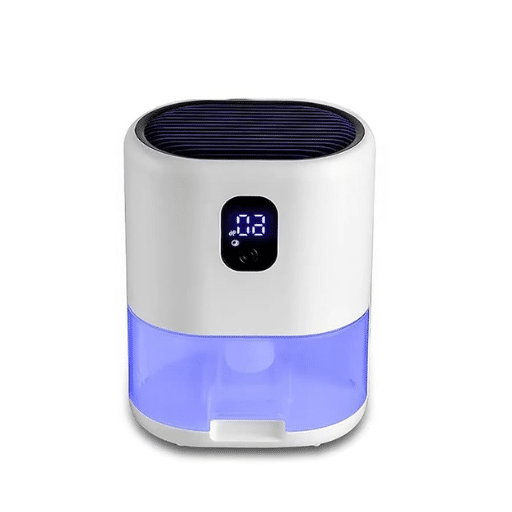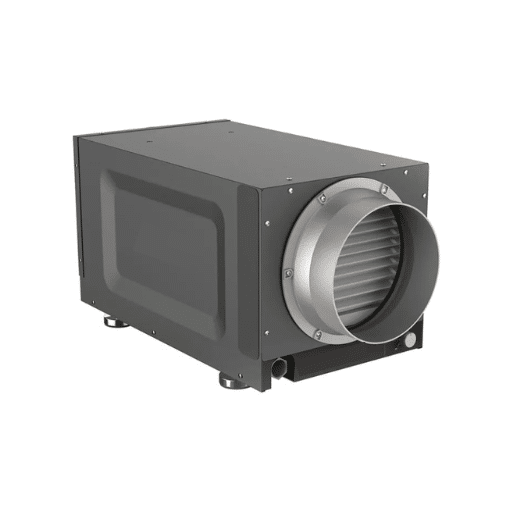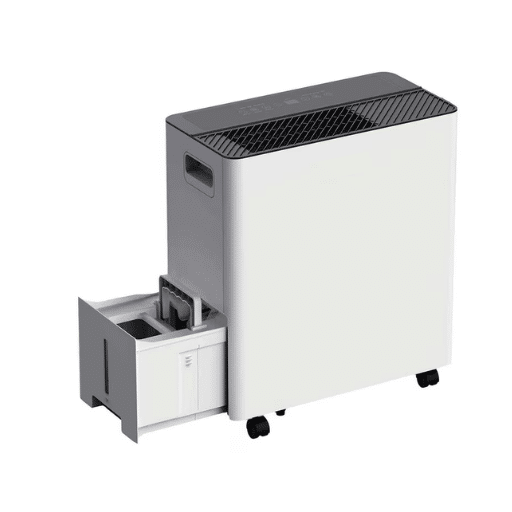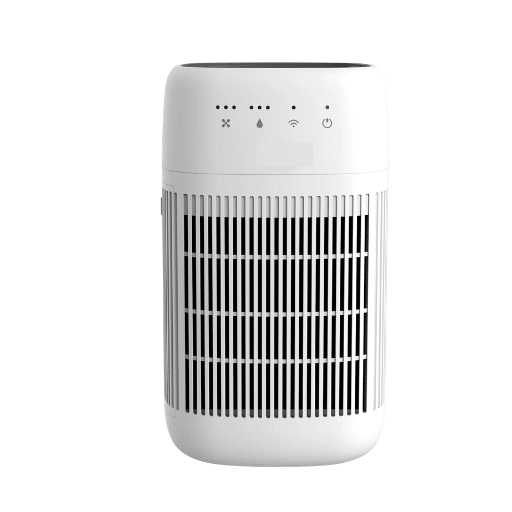Transform your living space by controlling humidity, preventing mold, and creating a healthier, more comfortable environment with the right compact dehumidifier.
Humidity control can make a world of difference in creating a healthy and comfortable living space. Excess moisture invites mold, mildew, and musty odors that can damage furniture and walls. A small dehumidifier is the ideal compact solution to tackle these problems while fitting quietly into your space, whether in a humid basement, stuffy bedroom, or muggy bathroom.
Understanding Small Dehumidifiers
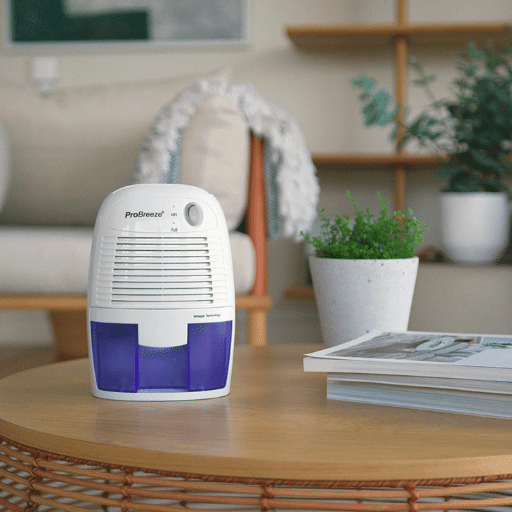
Small dehumidifiers are compact appliances designed to extract moisture from air for comfort and to prevent problems like mold, mildew, and unpleasant odors. These units are particularly beneficial in smaller spaces such as bathrooms, bedrooms, or basements with mild to moderate humidity levels.
Small dehumidifiers draw in humid air from surroundings and extract excess moisture using either thermoelectric cooling (Peltier technology) or desiccant materials. The collected moisture is stored in a reservoir that can be emptied periodically.
These units prevent mold growth, reduce allergens and odors, improve air quality, and operate with energy efficiency. Their portability allows targeted moisture control in various areas throughout your home.
Peltier technology uses cooling surfaces for condensation, while desiccant materials like silica gel absorb moisture directly from the atmosphere. Many modern units combine both approaches for optimal efficiency.
Choosing the Right Dehumidifier for Your Home
| Factor | Consideration | Recommendation |
|---|---|---|
| Room Size | Square footage to be dehumidified | Match capacity to space (20-30 pints for small rooms) |
| Noise Level | Bedroom or office use requirements | Look for “ultra-quiet” models under 40 decibels |
| Energy Efficiency | Long-term operating costs | Energy Star certified models for 20-30% savings |
| Maintenance | Filter cleaning and tank emptying | Washable filters and easy-access water tanks |
| Portability | Moving between rooms | Lightweight designs with handles or wheels |
Energy Efficiency: Energy Star Ratings
Energy Star-certified dehumidifiers can save you approximately $20 per year in electricity costs when used 8 hours daily.
Best Practices for Room-Specific Moisture Removal

- Choose quiet models for comfort
- Smart sensors for automatic adjustment
- Integration with smart home systems
- Maintain 30-50% humidity levels
- High-capacity units for serious moisture
- Continuous drainage capabilities
- Pump-assisted drainage for upward flow
- Low-temperature operation features
- Small-space specific designs
- Complement with exhaust fans
- Good airflow positioning
- Auto shut-off for safety
Top Portable Dehumidifiers for Bedrooms
Best for: Medium to large bedrooms
- Wi-Fi connectivity for smartphone app control
- Monitor and adjust humidity levels remotely
- Efficient moisture removal for larger spaces
- User-friendly digital interface
Best for: Large bedrooms and adjacent spaces
- Energy Star certified for efficiency
- Quiet operation for undisturbed sleep
- Continuous drain hose outlet
- Covers up to 4,500 square feet
Best for: Small bedrooms
- Compact and elegant design
- Simple interface with auto shut-off
- Reusable filter for cost savings
- Balance of efficiency and simplicity
Best for: Space-conscious users
- Collapsible design for storage
- Wi-Fi connectivity with app control
- Energy efficient operation
- Smart space-saving features
Best for: Sleep environments
- Ultra-quiet operation
- Elegant design for bedroom aesthetics
- Auto-drain option available
- Digital display for precise humidity control
Best Mini Dehumidifiers for Small Spaces
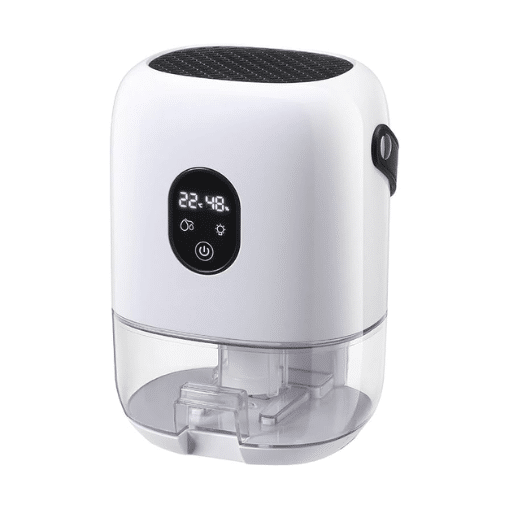
| Model | Best For | Key Features | Capacity |
|---|---|---|---|
| Pro Breeze Electric Mini | Bathrooms, closets, small bedrooms | Quiet operation, auto shut-off | 16-ounce water tank |
| Eva Dry Wireless Mini | Tiny spaces, cars, cabinets | No electricity required, portable | Renewable silica gel technology |
| SEAVON Electric Portable | Rooms up to 200 sq ft | Energy efficient, ultra-quiet | One-button control, lightweight |
Basement Dehumidifier Selection Guide
What to Look For in Basement Units
- Capacity: Determine pints per day based on basement size (larger spaces need 50-70+ pint capacity)
- Auto shut-off: Prevents overflow when water tank fills
- Built-in hygrometer: Monitors humidity levels continuously
- Continuous drainage: Eliminates need for manual tank emptying
- Energy Star rating: Essential for long-running basement units
- Low noise operation: Important if basement is near living areas
- Easy maintenance: Accessible filters and controls
Special Features of Modern Dehumidifiers
Built-in sensors automatically detect and maintain your desired humidity level (typically 50%) without manual adjustments, ensuring consistent comfort.
Connect a hose for direct drainage to sinks or floor drains, eliminating the need for manual bucket emptying in high-moisture environments.
Dual-function units with HEPA-type filters capture allergens, dust, and mold spores while dehumidifying, improving overall air quality.
Programmable timers allow automatic on/off scheduling for optimal energy usage and maintain comfort during your absence.
Quiet Operation: Why Noise Levels Matter
Noise levels are crucial when selecting dehumidifiers for bedrooms, offices, or nurseries. Modern units use advanced noise-reduction technologies to balance efficient humidity control with quiet operation. Look for models specifically marketed as “ultra-quiet” or with decibel ratings under 40 dB for minimal disruption.
Maintenance and Care
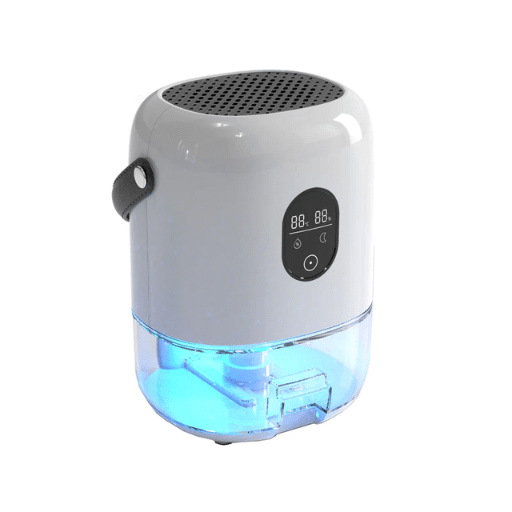
Regular Maintenance Schedule
Daily/Weekly Tasks
- Empty water tank: Prevent overflow and bacterial growth
- Check drainage hose: Ensure proper flow without clogs
- Monitor humidity levels: Verify optimal performance
Monthly Tasks
- Clean water tank: Prevent mold and bacterial buildup
- Wash/replace filters: Maintain efficiency (can reduce performance by 30% when clogged)
- Clean coils: Remove dust for optimal cooling and dehumidifying
Seasonal Tasks
- Deep clean entire unit: Comprehensive maintenance
- Check airflow clearance: Maintain 12 inches around unit
- Inspect drainage system: Look for leaks or damage
- Proper storage: Dry, covered area during off-season
Troubleshooting Common Issues
When to Replace Your Dehumidifier

Dehumidifiers typically last 5-10 years depending on brand, usage, and maintenance. Consider replacement when:
- Reduced efficiency: No longer removes moisture effectively despite maintenance
- Frequent repairs: Repair costs exceed 50% of new unit price
- Technology upgrade: New features like Wi-Fi connectivity, better efficiency
- Excessive noise: Mechanical sounds indicating internal wear
- Physical damage: Cracked housing, damaged coils, or electrical issues
References
-
A Simpler, More Efficient Device for Harvesting Water from the Air
A study from Ohio State University exploring innovative dehumidifier designs using temperature-sensitive materials for efficient moisture removal.
Visit the site -
Miniaturized Dehumidifier Integrated with Acetone
A research paper from the University of Pittsburgh discussing the design and functionality of a miniaturized dehumidifier system.
Visit the site
Frequently Asked Questions (FAQ)
What is the best dehumidifier for small rooms?
Generally, the dehumidifiers for small rooms have features such as an elegant compact design, adequate water tank capacity, and energy efficiency. Such units as the 35 oz small dehumidifier are great for areas under 500 sq ft, efficiently removing moisture whilst being portable enough to be moved around.
What to look for when choosing a dehumidifier for your bathroom?
Some factors to consider include the size, moisture absorption capacity, and noise level. A small portable dehumidifier for bathroom use would best have features such as automatic shut-off and a continuous drain option to combat humidity without requiring ongoing observation.
Is it possible to use a small dehumidifier in a bedroom?
A small dehumidifier for bedroom use controls humidity effectively and cleans the air to prevent mold formation on surfaces. It is advisable to choose an ultra-quiet model so it will not cause distraction. It should also be as energy efficient as possible.
What are the benefits of having a portable dehumidifier?
Portable dehumidifiers offer maximum convenience in terms of mobility. They can be moved from one room to another, be it in the bathroom, bedroom, or basement. Many designs make them lightweight and compact, so they work great in small areas and still provide a sufficient amount of hygroscopicity.
Are 50 pints dehumidifiers efficient for basement use?
Very much so; dehumidifiers rated at 50 pints are good choices for large spaces such as basements where humidity reaches its peak levels. They serve to remove much more moisture, thus maintaining a dry and comfortable milieu.
What features do I have to look for in a dehumidifier for home?
For the home, energy efficiency would be an important feature to look for (preferably Energy Star rated), along with water tank size, continuous drain capability, and auto shut-off so as to prevent overflow, all thereby ensuring convenience of usage.
Are any quiet dehumidifiers made for home use?
Yes, quite a few of the quiet dehumidifiers designed for home installation operate at very low noise levels, so they are great for bedrooms or living areas. Look for models that are marked as ultra quiet so you get minimal disruption in return for the dehumidifier removing excess moisture.
What size dehumidifier do I need in a 280 sq ft room?
A 20-30 pint capacity is generally good for a 280 sq ft room, as it will be sufficient for keeping humidity levels in check without going overboard and wasting energy on removing moisture.
How do moisture absorbers perform compared to electric dehumidifiers?
Moisture absorbers work passively without requiring any electric power; therefore, they are generally suited to smaller spaces or areas with no power outlets. Though, an electric dehumidifier, in particular, one meant for specific applications like a dehumidifier for bathroom bedroom, will efficiently and most effectively remove moisture, especially under high-humidity circumstances.

